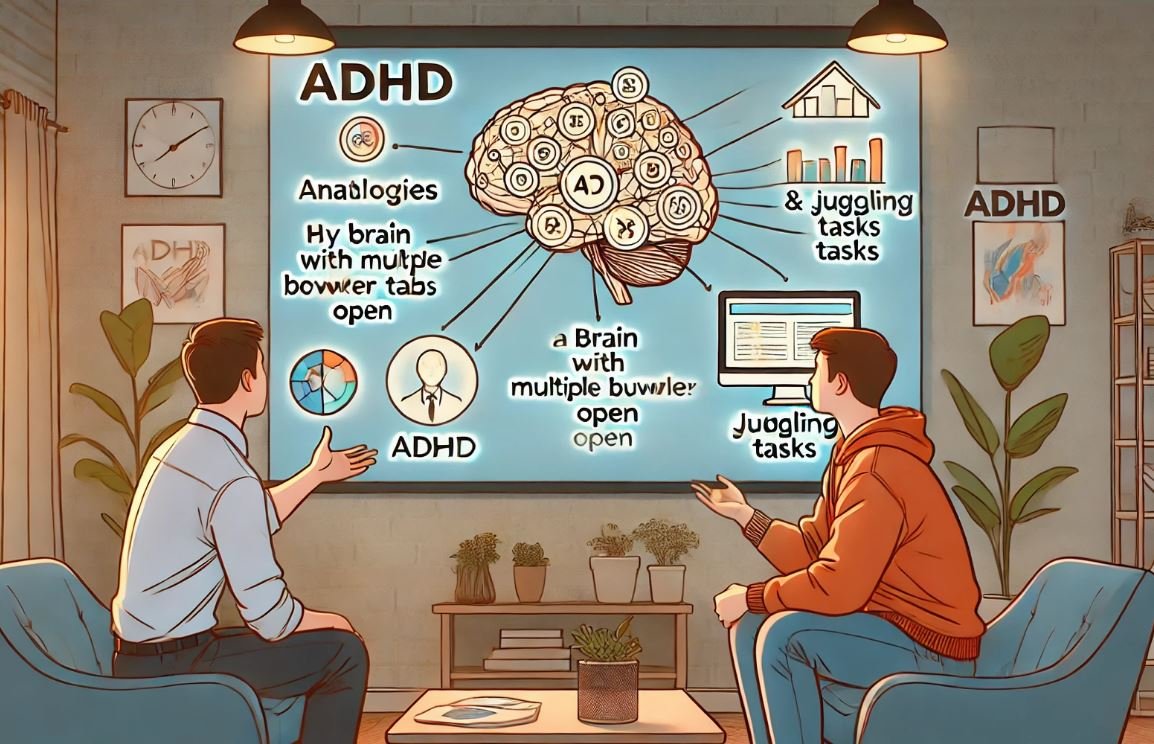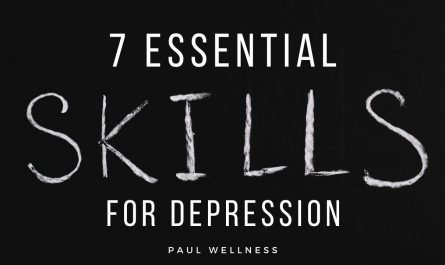Explaining ADHD to someone who doesn’t have it can be challenging. ADHD, or Attention Deficit Hyperactivity Disorder, is a complex neurodevelopmental condition that affects millions of people. It’s more than just being easily distracted or hyperactive; it involves a variety of symptoms that impact everyday life. Understanding and conveying the nuances of ADHD is essential for fostering empathy and support. This article will guide you on how to describe ADHD effectively, incorporating recent developments and expert insights. How to describe ADHD to someone who doesn’t have it? We’ll help you answer that.
Key Takeaways
ADHD is a complex condition with symptoms that affect attention, impulse control, and activity levels.
- Effective descriptions use relatable examples and analogies.
- Staying informed about recent research and expert opinions can help provide accurate information.
Planners can be highly effective with ADHD. Be sure to check our guide on the Best Planner for ADHD.
Understanding ADHD: The Basics
ADHD is characterized by persistent patterns of inattention, hyperactivity, and impulsivity. These symptoms can vary widely among individuals and impact different areas of life such as school, work, and relationships. Here’s a closer look at the primary symptoms:
- Inattention: Difficulty sustaining attention, frequent careless mistakes, forgetfulness in daily activities, and trouble organizing tasks.
- Hyperactivity: Constant fidgeting, inability to stay seated, excessive talking, and restlessness.
- Impulsivity: Interrupting others, difficulty waiting for a turn, and making hasty decisions without considering the consequences.
Using Analogies and Examples
Analogies and relatable examples can make complex concepts easier to understand. Here are some ways to describe ADHD using everyday situations:
- The Brain as a Browser: Imagine having multiple browser tabs open at once, all vying for attention. For someone with ADHD, it can be challenging to focus on just one tab without being distracted by the others.
- Radio Static: Think of ADHD as trying to tune into a specific radio station but constantly getting interference and static. It’s hard to concentrate on the music when there’s so much noise.
- Juggling Tasks: Describe ADHD as juggling multiple balls, where some tasks inevitably drop because there’s too much happening simultaneously.
Dispelling Myths and Misconceptions
It’s important to address common myths about ADHD to provide a clear understanding:
- ADHD is not just a lack of willpower: It’s a neurological condition that affects the brain’s executive functions.
- ADHD affects adults too: While often diagnosed in childhood, ADHD can persist into adulthood, impacting daily responsibilities and relationships.
- Medication isn’t the only treatment: Behavioral therapies, lifestyle changes, and educational support are also crucial.
Recent Developments in the Field
Recent research in ADHD has led to significant advancements in understanding and treatment. Studies have focused on genetic factors, brain imaging, and the effectiveness of various therapies. As of June 2024, new digital tools and apps are being developed to help manage ADHD symptoms more effectively.
Top Experts and Entities in the Field
- Dr. Russell Barkley: A leading authority on ADHD, known for his extensive research and publications.
- CHADD (Children and Adults with Attention-Deficit/Hyperactivity Disorder): A national organization providing resources and support for individuals with ADHD.
- ADDitude Magazine: Offers expert advice, articles, and resources for those affected by ADHD.
Conclusion – How to Describe ADHD to Someone Who Doesn’t Have It
Describing ADHD to someone who doesn’t have it involves using clear, relatable analogies and addressing common misconceptions. Staying informed about recent research and expert opinions can enhance the understanding and support for those living with ADHD.
Author
Paulwellness Paulwellness is an expert in the field with years of experience, holding LPC and LCADC credentials. For more insights, visit paulwellness.com.
Internal Links
- Best Family Conversation Cards
- Best Books for OCD
- 7 Types of ADHD: Understanding the Spectrum
- Ring of Fire ADHD: Deciphering the Flames
- Demand Avoidance ADHD: Navigating the Labyrinth
By focusing on features that cater to the specific needs of individuals with ADHD, these planners can help users stay organized and productive throughout the year.

